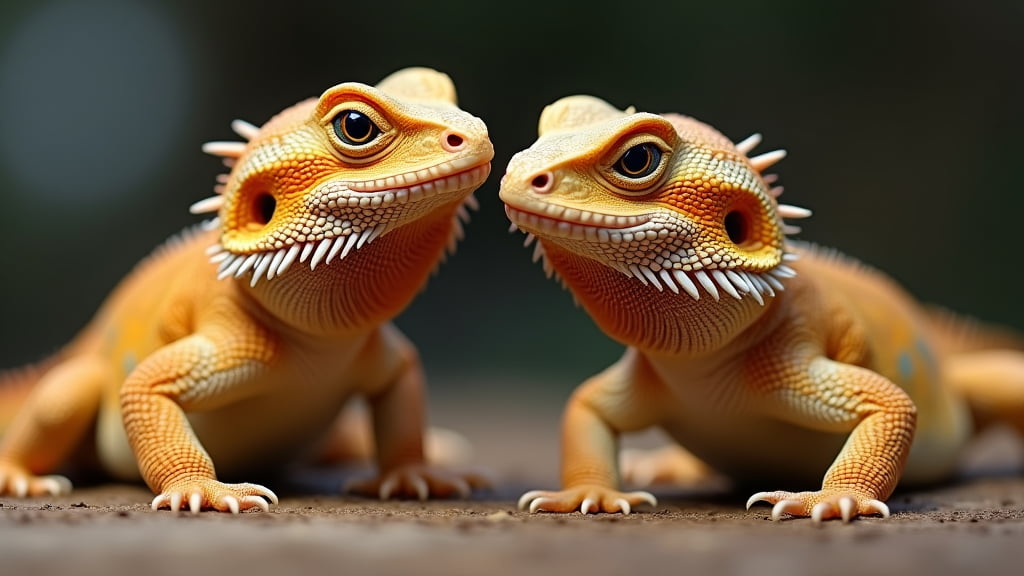Bearded dragons are fascinating and relatively easy-to-care-for pets, making them popular among reptile enthusiasts. However, ensuring your bearded dragon has a balanced diet is critical for their health and well-being. As someone who has kept these marvellous creatures for many years, I can tell you that feeding them properly is both an art and a science. Follow these feeding tips to ensure your bearded dragon thrives!
Components of a Balanced Diet
Insects
Insects form a crucial part of a bearded dragon’s diet, especially during their younger years. They are rich in protein, which is essential for growth.
Best Insects to Feed:
- Crickets: These are the staple of many bearded dragon diets. They are easy to find and relatively inexpensive.
- Dubia Roaches: Dubia roaches are another excellent option. They are more nutritious and less odorous than crickets.
- Mealworms: While mealworms can be a good source of protein, they should be fed sparingly due to their harder exoskeleton.
Feeding Tips:
- Gut Loading: Always gut-load your insects 24 hours before feeding them to your dragon. This means feeding the insects nutritious food that will benefit your pet.
- Dusting: Dust the insects with calcium powder to prevent metabolic bone disease.
Vegetables
Vegetables are also a staple in an adult bearded dragon’s diet and should be introduced early on.
Best Vegetables to Feed:
- Collard Greens: These leafy greens are packed with calcium and other essential nutrients.
- Mustard Greens: Another excellent choice, rich in vitamins A and C.
- Bell Peppers: They add colour and variety, and are rich in vitamins.
Feeding Tips:
- Chop Finely: Always chop the vegetables into bite-sized pieces to make it easier for your dragon to eat.
- Variety: Rotate different vegetables to ensure a balanced intake of nutrients.
Fruits
Fruits should be an occasional treat rather than a staple part of their diet due to their high sugar content.
Best Fruits to Feed:
- Blueberries: These small fruits are easy to eat and rich in antioxidants.
- Melon: Melons are hydrating and can be given occasionally.
- Apples: Remove the seeds and provide small pieces as a treat.
Feeding Tips:
- Moderation: Only offer fruits occasionally as a treat, not as a primary food source.
- Remove Seeds: Always remove any seeds, as they can be toxic.
Feeding Schedule
Baby Bearded Dragons
Babies require a lot of nutrition to support rapid growth. They should be fed multiple times a day for the first six months.
Feeding Frequency:
- Insects: 3-5 times per day
- Vegetables: Daily, though they may not eat much initially
Portion Size:
- Offer as many insects as they can eat in 10-15 minutes.
Juvenile Bearded Dragons
Juveniles still need a protein-rich diet but will start to eat more vegetables.
Feeding Frequency:
- Insects: 2-3 times per day
- Vegetables: Every other day
Portion Size:
- Gradually increase the portion of vegetables relative to insects.
Adult Bearded Dragons
Adults require a balanced diet with more vegetables and fewer insects.
Feeding Frequency:
- Insects: 2-3 times per week
- Vegetables: Daily
Portion Size:
- Allocate 70% of their diet to vegetables and 30% to insects.
Avoiding Common Pitfalls
Overfeeding
Overfeeding can lead to obesity and other health issues. Always monitor your bearded dragon’s weight and adjust portions if needed.
Poor Gut Loading
Insects that are not gut-loaded provide minimal nutritional value. Ensure you gut-load insects with nutritious food like carrots, leafy greens, and oats.
Ignoring Hydration
Bearded dragons get most of their water from their food, but they should have access to fresh water. Lightly misting their vegetables can also help keep them hydrated.
Conclusion
Feeding your bearded dragon properly requires a balanced diet of insects, vegetables, and occasional fruits. Adhering to a feeding schedule appropriate for their age and avoiding common feeding pitfalls are essential for their health and happiness.
By following these tips, you will ensure your bearded dragon lives a long, healthy life. Always consult with a vet for any health concerns related to your pet’s diet.
For more detailed information on bearded dragon care, check out our comprehensive guide to bearded dragon care.

